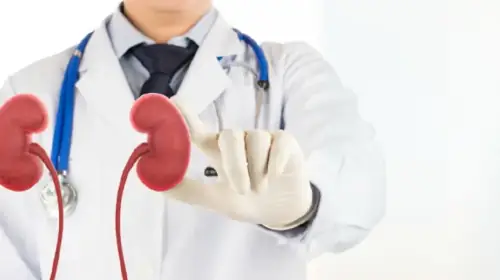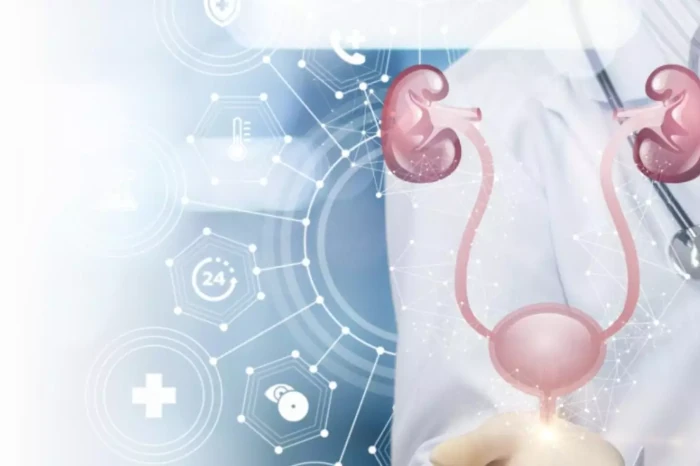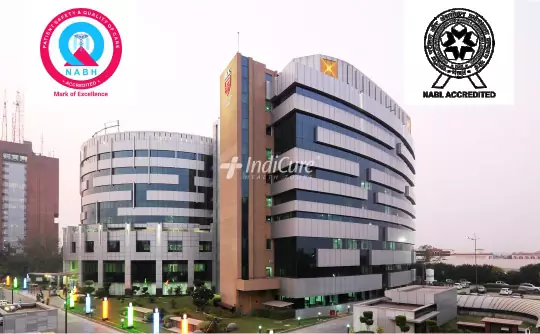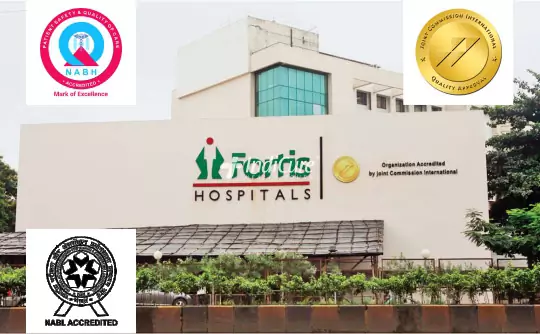

One of the key costs you will face when contemplating Lithotripsy in India is the urologist's fee. IndiCure connects you with board-certified urologists in India who are highly skilled and have delivered great results. While the urologist's fee can vary based on their experience, you can trust IndiCure to recommend doctors who prioritize your safety and deliver excellent outcomes when you choose Lithotripsy in India.
Various approaches and techniques are available for Lithotripsy in India, including Extracorporeal Shock Wave Lithotripsy (ESWL), ureteroscopy, and Percutaneous Nephrolithotomy (PCNL). The choice of treatment impacts the overall cost. Additionally, a significant portion of the total expense may come from the use of specialized surgical instruments or advanced computer technology. As new techniques and technologies are developed to enhance patient care, these innovations can also lead to higher costs.
Choosing an accredited medical facility with skilled and qualified medical staff is crucial for the success of Lithotripsy in India. In India, larger cities typically offer superior medical facilities and more experienced surgeons, resulting in higher costs. IndiCure Health Tours specifically recommends surgical facilities in larger cities of India to prioritize quality of care and ensure patient safety.
The surgery-related expenses include the pre- and post-surgical expenses. The pre-surgical expenses are associated with the age and medical condition of the patient and thus the number and type of investigations required. Post-surgical expenses may include prescription medications and follow-up consultations.
At IndiCure Health Tours, we consolidate most of the expenses for your Lithotripsy cost in India to provide you with an inclusive and cost-effective package tailored to your budget and individual requirements. After receiving medical reports, your case manager will provide an estimated cost based on a discussion with the surgeon.
The final Lithotripsy cost in India can however be confirmed after your face-to-face consultation with the urologist in India.

We Help you Choose the Right Treatment, Surgeon & Hospital

We Arrange Video/Telephonic Consultation with the Surgeon

We Assist you with Visa & Accommodation

We Receive you at the Airport and Drop you at Hotel/Hospital

We Assist you the at Hospital & Provide Post Operative Support
IndiCure Health Tours offers exclusive savings on medical tourism to India. We partner with top hospitals to negotiate special rates, ensuring you get the best possible price on your healthcare when you embark on medical tourism to India with us.

Here is a set of questions you should consider asking before commencing your journey for Lithotripsy in India.
Prepare to answer questions about your:
Lithotripsy, also known as Kidney stones (or renal calculi, nephrolithiasis, or urolithiasis) are mineral and salt deposits that grow inside your kidneys.
Kidney stones can be caused by a variety of factors, including diet, excess body weight, certain medical conditions, and certain supplements and drugs. From your kidneys to your bladder, kidney stones can harm any component of your urinary tract. When urine becomes concentrated, minerals crystallize and bind together, resulting in stones.
Kidney stones can be quite painful to pass, but if caught early enough, they usually do not cause permanent damage. To clear a kidney stone, you may only need to take pain medication and drink plenty of water, depending on your circumstances. In other cases, surgery may be required if stones become trapped in the urinary tract, are connected with a urinary infection, or cause problems.
A kidney stone normally does not produce symptoms until it travels about inside your kidney or passes into your ureters, which are the tubes that link your kidneys and bladder. If it becomes lodged in the ureters, it can obstruct urine flow and cause the kidney to enlarge and the ureter to spasm, both of which can be quite painful. You may experience the following indications and symptoms at that time:
Other signs and symptoms may include:
The following are some of the reasons why stone removal surgery is required:

New Delhi
BL Kapur Memorial Hospital is one of the biggest standalone private hospitals in Delhi, NCR. Established by late Dr. B L Kapur, an eminent Obstetrician, and Gynecologist on invitation by then Prime Minister of India, Mr. Jawahar Lal Nehru. The institute went on to become one of Delhi's premier multi-specialty hospitals.

Mumbai
Fortis Hospital, Mulund is a 300 bedded multispeciality tertiary care facility situated in the centre of the city, offering a range of clinical, diagnostic, and surgical services. The hospital began operations in 2002 and since then has achieved various milestones.
A combination of lifestyle changes and drugs may be used to prevent kidney stones.
Kidney stones can be detected using the following methods:
Most minor kidney stones do not require invasive treatment; instead, the following steps should be taken:
The composition of kidney stones is revealed through laboratory investigation. This information is used by the doctor to figure out why kidney stones form and how to prevent them.
In a small number of cases, the surgeon will treat you right away. If you have an infection, significant discomfort, or if your kidney function is impaired, if you only have one kidney or have had a kidney transplant, or if you have large stones or stones in both kidneys, you should get a kidney stone removed right away.
The kidney stone will pass in a few hours to weeks, most likely during urine. On average, it takes one to three weeks for stones to pass.
The optimal size for SWL is a stone with a diameter of less than 2 cm.
It should be avoided in the following situations:
Normally, no. Lithotripsy is usually performed as an outpatient procedure.
Advantage: The biggest benefit is that it cures kidney stones without requiring an incision, which cuts down on hospital stays and recovery time.
The disadvantage is that it does not always function. Within a month of receiving ESWL, approximately 58% of persons will be stone-free.A repeat procedure is sometimes required. ESWL has the potential to harm your kidneys.
Recovery period is usually extremely short; many people can return to their normal activities within one to two days.
Yes, you'll need to stay in the hospital for two or three days.
Patients leave the hospital stone-free after this treatment, and it is less invasive than a complete open surgery to treat a kidney stone.
In addition to the lithotripsy procedure cost in India, there are several other expenses you should plan for when organizing your medical trip to India. These include:
By accounting for these additional expenses along with the lithotripsy cost in India, you can create a comprehensive budget and ensure a smooth, comfortable recovery experience.
Enhance your medical journey to India by availing these extra services.
Traveling abroad for medical reasons may be challenging. With our experience of over a decade and working with the best surgeons and top hospitals in India, we help make your medical tour easier and safer for you. We will guide you at every step of the way and make end-to-end arrangements for your surgery, travel, and stay.
Ramandeep Dhaliwal
I had great experience having rhinoplasty through Indicure. Dr. Ruchika from Indicure has helped me in finding best plastic surgeon, answering all my questions...
Read More
Joshua Archer
My name is Joshua Archer I'm from New Zealand, bay of plenty, kawerau I opted for the bypass surgery in January 2023 but planned it in advance for 28 September found IndiCure...
Read More
Kera Ren
Absolutely loved my experience with IndiCure - from first inquiring to meeting the surgeon pre op to my follow up post op. The surgeon was extremely approachable...
Read More
Andreana Paul
Had a wonderful experience. Visited India for my plastic surgery. From sending mails, airport pickup, comfortable accommodation and, to smooth hospital appointment booking...
Read More
Brandi Luce
I had the privilege of using Indicure's services for a cosmetic procedure that I had wanted for a long time but had always been apprehensive about. Ruchika helped me...
Read More
Jade M
Indicure Health Tours went above and beyond my expectations. They helped me with every aspect of my journey and were professional, kind and caring. I was...
Read More
The content on the website (www.indicure.com) is intended to be general information and is provided only as a service. All photographs on our website of before and after results are examples only, and do not constitute an implied or any other kind of certainty for the result of surgery.
Learn about IndiCure Health Tours' comprehensive editorial policy that strives to deliver trustworthy, helpful, relevant, accurate and people-first content on medical tourism in India.
It is not medical advice and should not be taken as medical advice. It should not be used to diagnose or treat a health condition and is in no way meant to be a substitute for professional medical care. You are advised to see a surgeon in person to assess what surgery may or may not accomplish for you.
It is also important to keep your expectations realistic and to understand that all surgical procedures carry risks and should never be taken lightly.